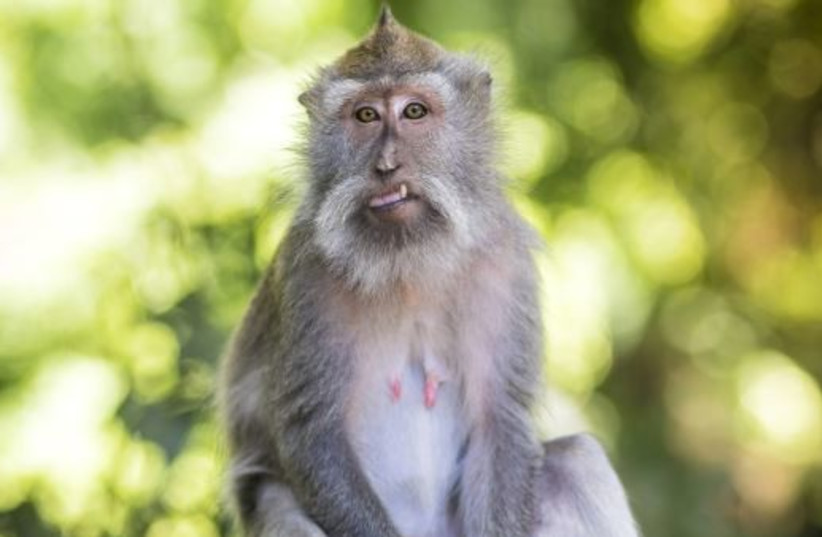Monkeys, much like humans, are capable of complex deliberation and careful decision-making, according to a study published on Monday in the peer-reviewed journal Nature Neuroscience.
The new research challenges the long-held idea that only humans possess the ability to think deeply about a problem and consider multiple factors including costs, consequences, and constraints.
The study notes the previous work of Dr. Daniel Kahneman, a Nobel Prize laureate, who decades ago revolutionized the field of behavioral economics with his Prospect Theory. Kahneman theorized that humans use two distinct systems of thinking: One nearly instantaneous and automatic, and the other much slower and reliant on conscious logical reasoning that requires greater mental effort.
Kahneman called the first type of thinking “slow” and the second “fast.” Slow, effortful thinking allows us to engage in complex activities such as writing, developing scientific hypotheses, and paying bills. Until now, it was believed that slow thinking was unique to humans.
“Humans are not the only animals capable of slow and thoughtful deliberation,” said senior author William Stauffer, Ph.D., assistant professor of neurobiology at the University of Pittsburgh School of Medicine. “Our work shows that monkeys have a rich mental state that renders them capable of intelligent thinking. It’s a new paradigm for studying the neurophysiological basis for deliberative thought.”

The new study sheds light on the cognitive processes at work when we, as humans, make decisions about various aspects of our lives, such as who to spend time with or what to study in school.
Furthermore, the findings address key questions about the nature of thought processes and decision-making in animals, and whether other species are also capable of engaging in the same level of complexity as humans.
How was the research on monkeys conducted?
The new findings contradict Kahneman's theory. By giving monkeys combinatorial optimization problems, which the researchers named the “knapsack task,” and rewarding the animals based on the value of their solutions, the study demonstrated that monkeys employed advanced mathematical reasoning and used efficient computational algorithms to go about challenging problems.
The scientists found that the animals’ performance and speed of deliberation were dependent on how difficult the task was and that their solutions closely mirrored those generated by efficient computer algorithms specifically created to solve the optimization problem.
What's another example of monkey-human similarities?
Humans and chimpanzees share 99% of their genes. When DNA insertions and deletions are taken into account, the two primates still share 96% sequence identity. Psychologists and anthropologists who have studied adolescent chimps say they share some of the same risk-taking behaviors as human teens but that they may be less impulsive than their human counterparts.
A study published in January tackles the age-old question of why adolescents take more risks – is it because of the environment or because of biological predispositions?
Prof. Alexandra Rosati, an expert in these fields at the University of Michigan, was the lead researcher in the study published by the American Psychological Association’s Journal of Experimental Psychology: General, titled “Distinct Developmental Trajectories for Risky and Impulsive Decision-making in Chimpanzees.”
The onset of risk-taking behavior in this period accompanies profound changes in brain circuitry and cognitive capacities that support decision-making, cognitive control and emotion regulation, the researchers wrote. “Adolescent chimpanzees are in some sense facing the same psychological tempest that human teens are,” said Rosati. “Our findings show that several key features of human adolescent psychology are also seen in our closest primate relatives.”
In the study, both adolescent and adult chimpanzees chose the greater delayed reward at a similar rate. Human teens tend to be more impulsive than adults so they would be more likely to take the immediate reward.
Risk-taking behavior in both adolescent chimpanzees and humans appears to be deeply biologically ingrained, Rosati concluded.
Judy Siegel-Itzkovitch contributed to this report.
